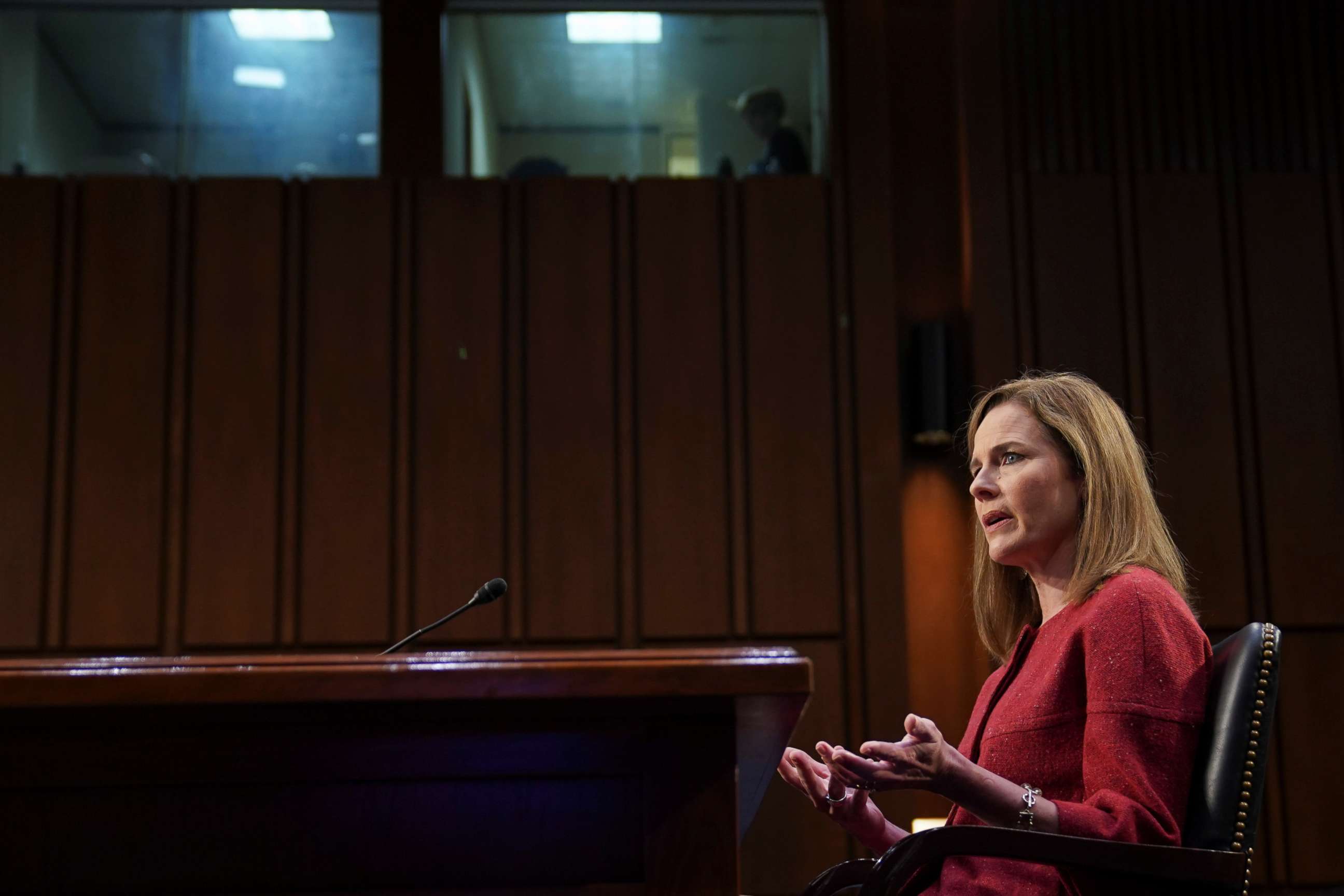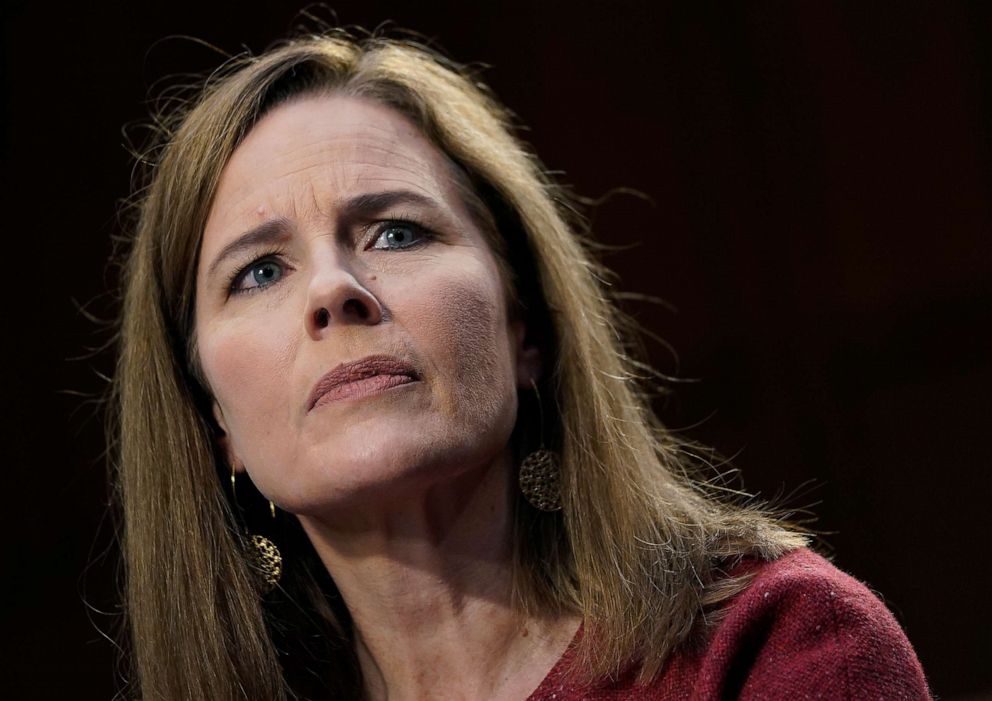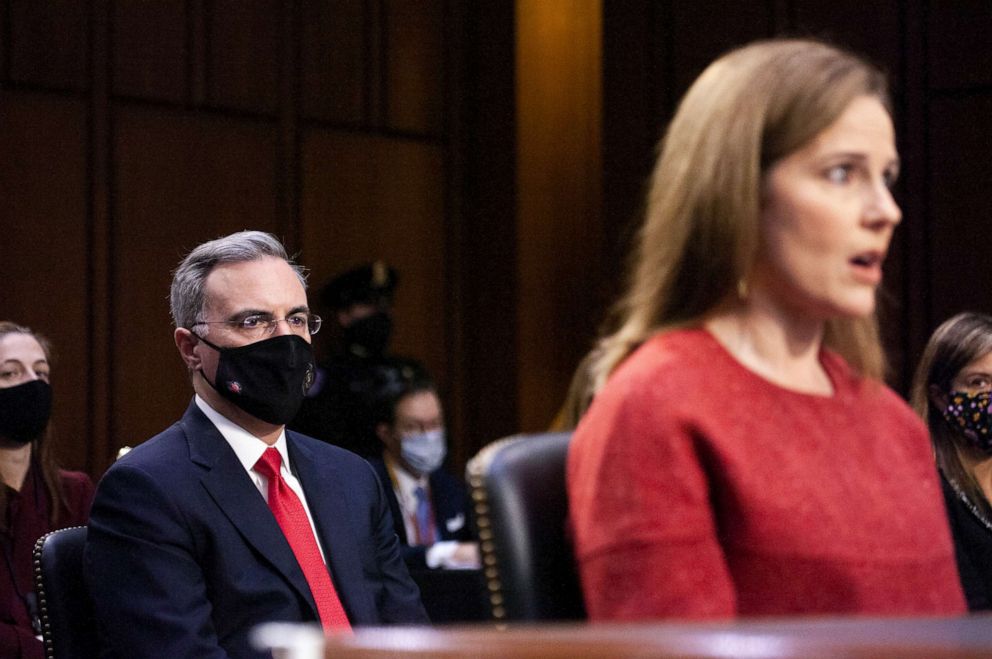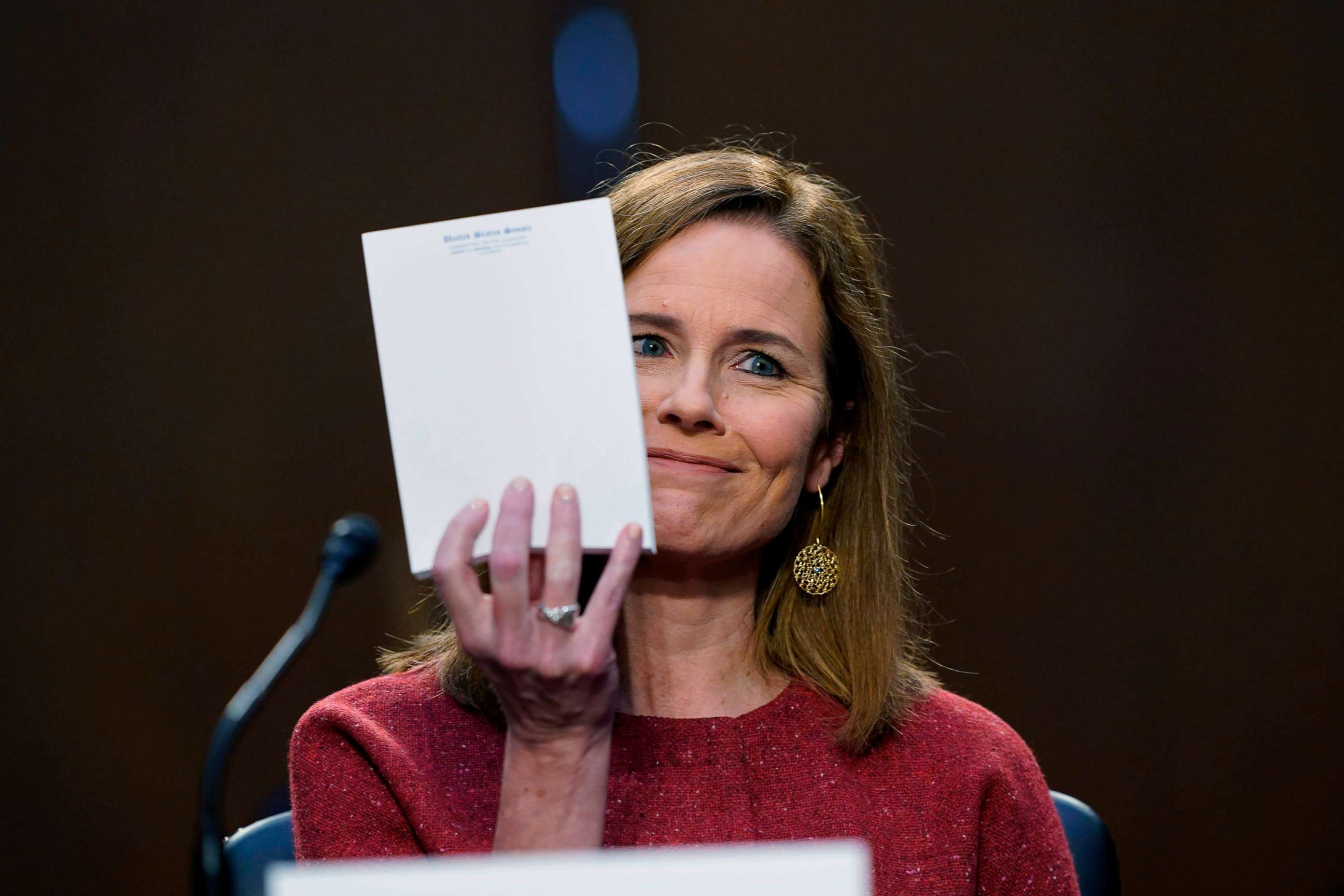Barrett on her family's reaction to George Floyd video: 'We wept together'
Sen. Dick Durbin, D-Ill., asked Barrett if she’s seen the video of George Floyd dying in police custody. She said yes.
“What impact did it have on you?” he then asked.
Barrett paused for a moment before answering.
“Senator, as you might imagine, given that I have two Black children, that was very, very personal for my family,” she began.
“Jesse was with the boys on a camping trip out in South Dakota, so I was there and my 17-year-old daughter Vivian, who is adopted from Haiti, all of this was erupting and it was very difficult for her. We wept together in my room and it was also difficult for my daughter, Juliette, who is 10. I had to try to explain some of this to them,” she continued.
“My children to this point in their lives have had the benefit of growing up in a cocoon where they haven't experienced hatred or violence. For Vivian to understand there would be a risk to her brother or the son she might have one day of that kind of brutality has been an ongoing conversation. It is a difficult one for us like it is for Americans all over the country,” Barrett said.

Durbin then acknowledged how some Americans don’t teach children the history of slavey while others say there is implicit bias in aspects of American life and many argue racism is systematic.
“How do you feel?” he asked Barrett.
“I think it is entirely uncontroversial that racism persists in our country. As to putting my finger on the nature of the problem, whether as you say it's just outright or systemic racism, or how to tackle the issue of making it better those things, you know, are policy questions,” she said, avoiding a clear answer.
“They are hotly contested policy questions that have been in the news and discussed all summer. So while, you know, as I did share my personal experience very happy to be discussed the reaction our family had to the George Floyd video, giving broader statements or making broader diagnoses about the problem of racism is kind of beyond what I'm capable of doing as a judge,” she said.
Durbin replied, “Well, I would doubt that. I just don't believe you can be as passionate about originalism and the history behind language that we've had for decades, if not centuries, without having some thought about where we stand today.”







